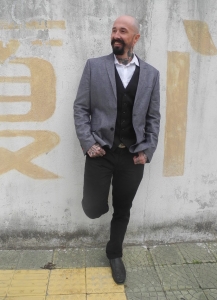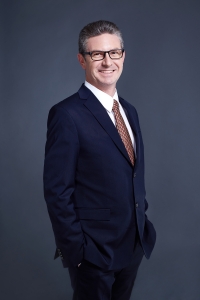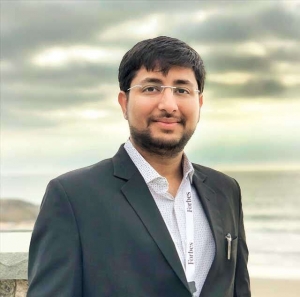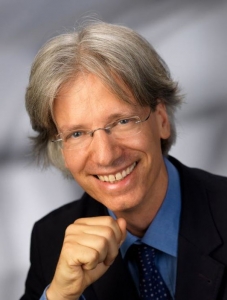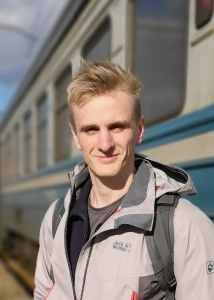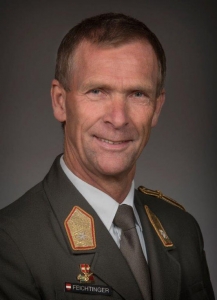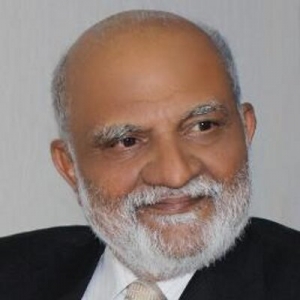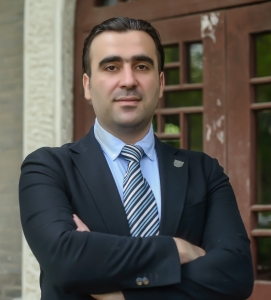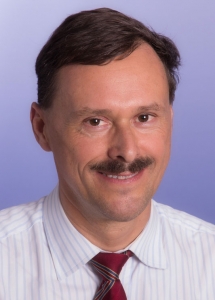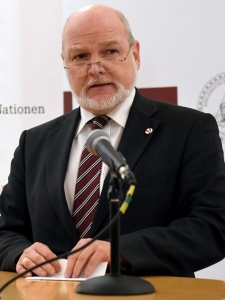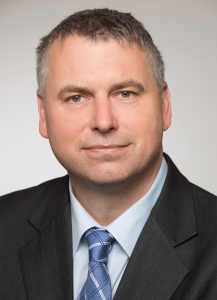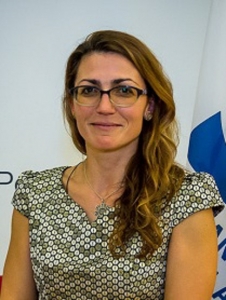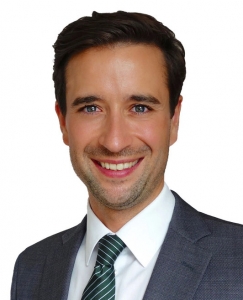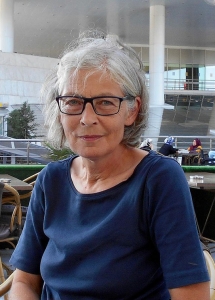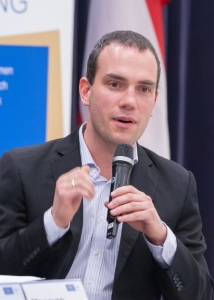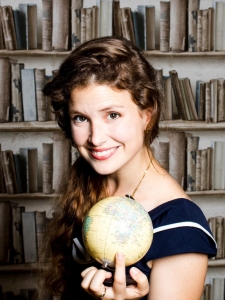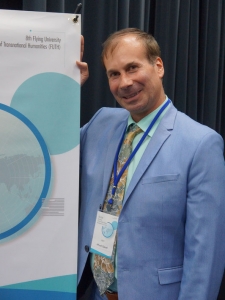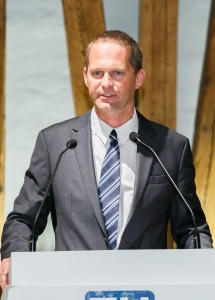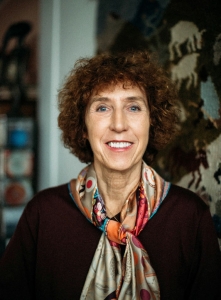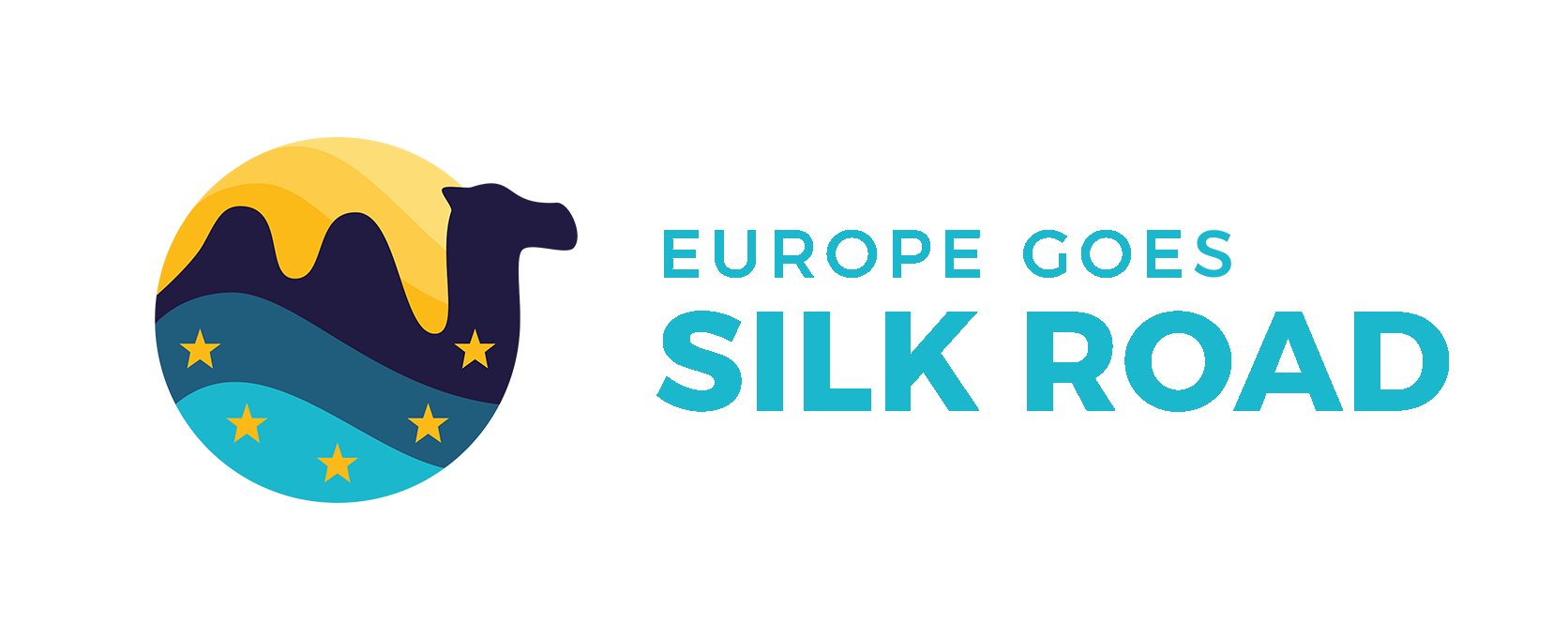Advisory Board
WADE SHEPARD
Over the past four years Wade Shepard has been been traveling up and down the various corridors of the New Silk Road, watching how these ancient trade routes are rising up once again and altering our paradigms of how the world works in the 21st century. Conducting on the ground research in over 35 countries, Shepard documented his findings in an upcoming book called On the New Silk Road (Zed Books). Throughout these travels he also authored a popular series of articles on Forbes Asia, features in The Guardian, and worked on documentary films with BBC World. His previous book is called Ghost Cities of China, which chronicles the two and a half years he spent in China’s sparsely populated new cities. Currently, Wade is working on a documentary film about the impact of the embattled Melaka Gateway Belt and Road project, which he feels is a telling indication of what China’s brand of development brings to the world.
David Morris
David Morris is an international consultant with senior advisory roles in the Asia Pacific and Europe. He is Chair of the United Nations Asia Pacific Business Forum 2019, holds Vice Presidency of the Sustainable Business Network at United Nations Economic and Social Commission for Asia and the Pacific and is Senior Expert for China, East Asia, Australia and the Pacific.
In addition he acts as Advisor for the Research Center for Pacific Island Countries, at Liaocheng University and as Advisory Board Member at the Institute for Cultural Relations Policy in Budapest. With a thirty-year career in diplomacy, politics, academia and international business, Mr. Morris represents expertise in geopolitics and international relations, governance and leadership dialogue, economic development, trade, investment and international marketing.
Dr. Binish Desai
Dr. Binish Desai is an innovator and a social entrepreneur working on industrial waste recycling and management. He holds a master’s degree in environmental engineering and an Honorary PhD in Environmental Science and Technology. His journey started at the very young age of 11, by carrying out home based experiments with chewing gum and paper. Currently he has 150+ eco-products under the “Eco Eclectic Technologies” banner in India.
Besides his nomination as Padma Shri nominee, Dr. Desai has received many national and international awards for his contributions such as being the youngest receiver of the “Rotary International Alumni Humanitarian of the Year” award for South Asia, being listed on “Forbes 30 Under 30 Asia 2018” and being recently named “International Social Entrepreneur of the Year 2019”. For his efforts in recycling more than 700 tons of industrial waste he is known as the “Waste Warrior and Recycle Man of India”.
PROF. DR. SEBASTIAN KUMMER
Sebastian Kummer is the director of the Institute for Transport Economics and Logistics at the Vienna University of Economics and Business and author of more than 100 publications. He is co-editor and one of the editorial directors of the scientific journal “Logistikmanagement”. He is the scientific director of ÖVG, member of the board of the Austrian BVL and the scientific advisory board of the German BVL.
As a practice-oriented scientist, Sebastian Kummer and his colleagues carry out scientific research projects as well as consulting projects on current issues in the fields of logistics management, logistics controlling, supply chain management and transport management. The results of this work are incorporated in numerous lectures and further education events.
JACOB MARDELL
Jacob Mardell travelled across Eurasia throughout 2019, exploring China’s Belt and Road Initiative and reaching Vietnam from Germany by land. Jacob works as a researcher at the Mercator Institute for China Studies (MERICS) in Berlin, where he focuses on the BRI and Chinese foreign policy. He writes for the Berlin Policy Journal, Bertelsmann, and has published op-eds in SCMP, Politico, Foreign Policy, and others. Jacob has a postgraduate degree in Chinese language and politics from the School of Oriental and African Studies (SOAS) in London, and studied at Zhejiang University of Finance and Economics.
BRIG. GEN. DR. WALTER FEICHTINGER
Brigadier General Mag. Dr. Walter Feichtinger has been director of the Institute for Peace Support and Conflict Management at the National Defence Academy since 2002.
He is a member of the Science Commission MoD, the Advisory Board of the European Forum Alpbach, the Austrian Security Research Program (KIRAS) and the Danube University Krems. Moreover, he is a founding member of the International Society of Military Sciences.
His expertise ranges from Austrian, European and International Security Policy, to Armed Conflicts and Strategic Impacts as well as International Crisis and Conflict Management.
His numerous publications focus on the topics of international crisis management, Austrian Security Policy, the development of conflict and war scenarios as well as strategic analysis.
PROF. DR. SUSANNE WEIGELIN-SCHWIEDRZIK
Susanne Weigelin-Schwiedrzik is a sinologist and has been the program director of East Asian Studies at the University of Vienna since 2016. Moreover, she is a corresponding member of the Austrian Academy of Sciences since 2011, and a member of the board of trustees of the Austrian Chinese Business Association since 2018. The sinologist was appointed to the University of Vienna in 2002 and from 2011 to 2015 was vice-rector for research and career development as well as the first deputy of the rector.
From 1999-2001 Weigelin-Schwiedrzik was vice-rector for International Relations at the University of Heidelberg. Throughout her career, Susanne Weigelin-Schwiedrzik has held numerous visiting professorships outside of Europe (including Beijing University, University of Califorina, Berkeley, Hong Kong University of Science and Technology, Chinese Academy of Social Sciences and Chinese University of Hong Kong).
MAHMOOD SHAAM
Shaam is one of the best known journalists of Pakistan. After serving “JANG GROUP” for more than 16 years continuously as Group Editor, he joined “ARY Group” in September 2010 and later launched a new Urdu newspaper “Jehan Pakistan” in Karachi, Islamabad and Lahore in 2012. After a brief stint there, he resigned after some differences with the management and launched a new book called “Media Manzar”. Since then he is focusing on his literary work and on his upcoming book.
His search for truth and defiance shown to rulers landed him twice in jail during his carrier. He has written over 20 books including few poetry books. Shaam is very well renowned for interviewing global leaders such as former US president Gerald Ford, former Indian prime minister Indira Gandhi, Yasir Arafat, Henry Kissinger and many others.
After being in journalism for 48 years he says that the central dilemma in journalism is that you don’t know what you don’t know.
MHER SAHAKYAN
Mher Sahakyan is founder and director of the China-Eurasia Council for Political and Strategic Research, Armenia. He is the founder of the annual international conference Eurasian Research on Modern China and Eurasia. He is an elected advisory board member of the International Institute for Peace (IIP), Austria. He is a member of the British Association for Chinese Studies.
Mher holds a doctorate in international relations from China’s Nanjing University and is now a lecturer at the Russian-Armenian University and at the National Academy of Sciences (NAS) of Armenia. In Armenia, Mher initiated an annual special course Rethinking China’s Foreign Policy for young specialists. He has many academic and analytical publications regarding security issues and China’s foreign. He is the author of the book China’s Belt and Road Initiative and Armenia, which was published in Armenian and in Russian.
Mher has presented and introduced his researches in many conferences at the IIP, University of Oxford, University of Cambridge, Moscow State University, Shanghai University, University of Edinburgh, King’s College London, Academic Council on the United Nations System, Delegation of the EU to China, etc.
PRIV.-DOZ. DR. STEPHAN BARISITZ
Stephan Barisitz is a research economist in the Foreign Research Division of the Oesterreichische Nationalbank (Austrian Central Bank). He joined the bank in December 1998 and focuses on country research and monitoring of Russia, Ukraine, the CIS, Southeastern Europe, banking and financial sector analysis. Barisitz has already worked at the Vienna Institute for International Economic Studies (WIIW), at the Austrian Institute for East and Southeast European Studies (OSI) and as an economist at the OECD in Paris, where he and a colleague lead the Russia-CIS-Bulgaria-Desk of the OECD – Economics Department. From 2009 to 2013 he was a lecturer at the Institute for Economic and Social History and researched the economic history of Central Asia and the Silk Road.
PROF. DR. HERMANN MÜCKLER
Hermann Mückler studied ethnology, cultural anthropology, political science, and communication sciences at the University of Vienna, where he also habilitated on subjects related to the Pacific Islands region. Since 1994 he has held various positions at the Institut für Völkerkunde (today Department for Social and Cultural Anthropology), since 2001 as an university professor. He is the founder of the Austrian-South Pacific Society (OSPG). He was acting as Vicedean of the Faculty of Social Science in the years 2004-2008 and held several senior positions in domestic and foreign scientific societies, committees and editorial boards. Since 2012 he has been President of the Anthropological Society in Vienna, as well as President of the umbrella organization of all Austrian-Foreign Societies-PaN, the Austrian-Fijian Society, Vice-President/Second Chairman of the Society for Overseas History, the Institute for Comparative Research in Architecture. His scientifi oeuvre currently comprises 28 books (authored and edited) as well as well over 300 publications (articles and reviews).
AO.UNIV.PROF. MAG. DR. GÜNTER EMBERGER
Günter Emberger is the head of the research division of the Institute for Transportation, Center for Transport Planning and Traffic Engineering at TU Wien. He is author of more than 100 scientific publications, member of the scientific direction of the Austrian Society for Traffic and Transportation Sciences (ÖVG), member of the ITS-Board Austria, member of the Panel of Austrian Scientists for Environmental Protection, Chair of the Special Interest Group G2 of WCTRS – National and Regional Transport Planning and Policy, etc.
The main research topics of Günter Emberger are sustainable mobility, the planning of public and freight traffic as well as design, all with a focus on the human being and his environment. The outcomes of his research are used for academic teaching and applied projects. This practice contributes to the development of a humane and environmentally appropriate transport system.
VELINA TCHAKAROVA
Velina Tchakarova is Head of Institute since 2018 and was previously Senior Research Fellow at AIES. She studied Political Science and International Relations at the Ruprecht-Karls-University Heidelberg in Germany and at the University of National and World Economy in Bulgaria. She holds a Master of Arts degree in Political Science of South Asia and a bachelor’s degree in International Relations.
Her work includes research, consulting, lectures and publications on Global System Transformation and geostrategy of global actors, including China’s role in the emerging Global Order, and particularly its role in Eastern Europe. She also participates in a Scenario Monitoring Team at the Defence Ministry of Austria on Global System Transformation and in simulation games at Wikistrat. Her theoretical and methodological background is derived from the systems analysis and geopolitics. Her special contribution is centered around China’s role in the emerging new global order, global actors’ constellations as well as the systemic rivalry between the USA and China and the role of free riders such as Russia, India and the EU.
PETER BUCHAS
Peter Buchas is a business consultant, trainer and coach. He studied physics at the University of Vienna, is fluent in Mandarin and holds a Master in Chinese Economic Policy from the University of Xiamen. He is also a board member of the Austrian Chinese Business Association. He has been working in the field of corporate development since 2009, holds courses at the Technical University of Munich, WU Vienna and FH Kufstein, and is research associate at the Chinese Fudan University. He focuses on leadership development in international corporations and supports companies in building up innovative corporate cultures. Furthermore he is the leading China expert in the staff of the Institute for Peace Support and Conflict Management of the Austrian National Defence Academy.
ASS.-PROF. DR. GABRIELE RASULY-PALECZEK
Gabriele Rasuly-Paleczek studied Sociology, Political Science and Social and Cultural Anthropology, Turkology and Islamic Studies and is working at the Institute of Social and Cultural Anthropology of the University of Vienna. Until today Rasuly has also given lectures at a large array of different universities, e.g. the Middle East Technical University in Ankara, the University of Southern California in Los Angeles, Boston University, Harvard University. She has been a visiting research fellow at Yale University and at Samarkand State University, and a mentor in the Central Asia Research Initiative of the Open Society Institute of the Soros Foundation. Rasuly-Paleczek conducted extensive field research in various parts of Turkey and among Afghan refugees in Pakistan as well as archival research in the India Office Library in London. She has been involved in establishing the European Society for Central Asian Studies (ESCAS) and served as the society´s general secretary, 2000-2002 vice-president and president. Since 2014 she is a member of the advisory board of the Cultural Studies Association of Turkey.
Her research interests are socio-economic transformations in the Middle East and Central Asia, ethnicity and other collective identities, processes of state and nation building, development policy, migration and refugee studies.
DR. HANNES MEISSNER
Hannes Meissner has many years of experience in research and business practice regarding the countries of the Silk Road. As a Managing Partner of “L&M Political Risk and Strategy Advisory GmbH”, he advises companies on political risks and management strategies. As a Senior Researcher at the Competence Center for Black Sea Region Studies (FH of BFI Vienna) and as a lecturer and member of the Research Group Eastern Europe at the University of Vienna, he researches and gives lectures on informal rule, hybrid regimes and political risk (management) of multinational companies with a regional focus on Russia, South Caucasus and Central Asia. He has carried out longer research stays in Turkmenistan, Azerbaijan and Georgia (2009-2011), Ukraine (2013/2016) and Kazakhstan (2018).
JULIA GRÜBLER
Julia Grübler is an economist at the Vienna Institute for International Economic Studies (wiiw), where she holds a position at the Research Center International Economics (FIW), and lecturer at the Vienna University of Economics and Business (WU). Her research focuses on international relations with a focus on trade policy of the European Union. Since 2016 she has been dealing with the potential economic opportunities and risks of the China-initiated “New Silk Road” for states in Europe. To make use of the potential of this initiative political will of the EU and China for complementary strategies, ongoing research, evaluations and qualified information to the public are recquired.
ASSOC. PROF. DR. ALFRED GERSTL
Alfred Gerstl is an International Relations specialist with a regional focus on Asia-Pacific, notably Southeast Asia (regional cooperation, Association of Southeast Nations, South China Sea, terrorism and geopolitical impacts of China´s Belt and Road Initiative), and on IR theories (traditional and human security). In addition, he has expert knowledge on the Southeast Asian political and economic systems. He studied Political Science at the University of Vienna (Master and PhD) and IR at Macquarie University in Sydney (Master). Since 2018 Alfred Gerstl is AIES Fellow. Previously, he was a Postdoc Researcher at the Department of East Asian Studies/East Asian Economy and Society (EcoS) at University of Vienna. In addition, he is postdoc researcher and member of the project steering team in the EU project „Sinophone Borderlands – Interactions at the Edges“ (2018–2022) at Palacký University in Olomouc (Department of Asian Studies). From October 2018 until January 2019 he is furthermore Assoc.Prof. at the Department for Oriental Studies at Novosibirsk State University (NSU). Alfred Gerstl regularly lectures at the Austrian National Defence Academy and the Theresian Military Academy. Previously, he was researcher and lecturer at Macquarie University and lecturer at the University of Applied Sciences Kufstein and the University of Passau. He also worked as researcher at the Institute for Advanced Studies (IHS) in Vienna. Furthermore, Alfred Gerstl was director of the non-university research institute South-East Asian Studies (SEAS) and the founding editor-in-chief of the Austrian Journal of South-East Asian Studies (ASEAS).
DIPL.-ING. (FH) THOMAS GREINER, MSC MBA
In 2017/2018 Thomas Greiner stayed in Asia and Australia for an international exchange of experience with motorway operators and stakeholders. Thomas Greiner manages infrastructure projects in road construction for ASFINAG (Austrian motorway operator). He is responsible for the guidelines for traffic telematics in Austria and received numerous awards for his services in the field of transport (Mobility Award VCÖ, Science Award TÜV Austria, etc.).
WALTRAUT URBAN
Waltraut Urban is an economist and used to be industrial consultant and China specialist at the Vienna Institute for International Economic Studies (wiiw) for many years. Since 2011 she has been working freelance as a researcher focusing on China-EU, China-Austria and the New Silk Road. She is a lecturer at the Austrian Institute for China and Southeast Asia.
She studied economics at the University of Vienna, taught at various universities (Vienna University of Technology, Vienna University of Economics and Business, etc.), was a member of the Austrian Institute for Economic Research (wifo) and the Austrian Institute for International Politics (oiip).
Waltraut Urban has followed China’s economic development closely since the beginning of the reforms. She traveled to China for the first time in 1980 and most recently in the summer of 2018, following the footsteps of the Silk Road from China to Kazakhstan, Kyrgyzstan and Tajikistan. Her research led to numerous publications in academic and non-academic fields.


